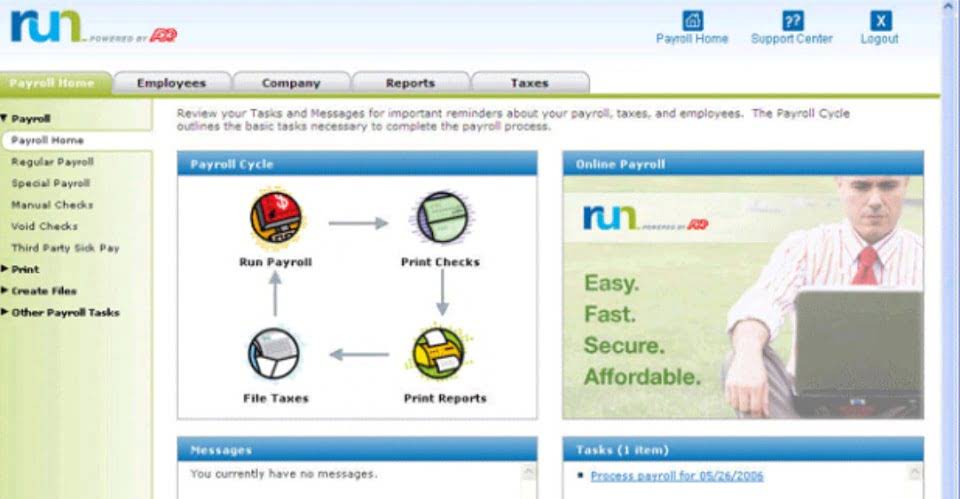
Compare enrolled agent salaries for cities or states with the national average over time. The average enrolled agent salary in Alaska, Wisconsin, and Washington are the highest in the U.S. The lowest average enrolled agent salary states are Virginia, Tennessee, and West Virginia. The average Enrolled Agent salary in New York is $45,649 as of June 27, 2024, but the range typically falls between $42,113 and $51,240.

What is the Average Annual Salary of Enrolled Agent in The United States?
What’s more, when an enrolled agent runs a small agency or brokerage that offers complete, specialized tax solutions for its clients, she can expand her earning potential even more. And, enrolled agent salaries are on the rise at larger firms and corporations, too. So, if you’re just starting out as an enrolled agent, you can expect to make somewhere between $30,000 and $40,000 annually. Because enrolled agents have the enrolled agent salary authority to represent clients before the IRS, they can fulfill a more specialized niche than non-enrolled tax preparers and accountants. Therefore, while CPAs do earn more on average than enrolled agents in the short run, the potential for earnings over the span of a career can be higher for enrolled agents. Enrolled Agent (or EA) is a tax advisor who is a federally authorized tax practitioner empowered by the U.S.
- Some larger organizations pay their entry-level Enrolled Agents more than smaller organizations pay experienced Enrolled Agents.
- EAs are federally authorized to represent taxpayers before the IRS and have unlimited representation rights.
- Having the Enrolled Agent credential gives you the ability to more effectively speak about things important to your client.
- And while they say everything’s bigger in Texas, this statement doesn’t necessarily hold true for Dallas enrolled agent salaries.
- If your goal is to work at one of the Big 4 accounting firms, the Enrolled Agent designation is one way to stand out from other applicants.
- If you are considering making a career change or simply exploring career options in the accounting industry, one career choice you may be thinking about is becoming an Enrolled Agent (EA).
The Primary Difference: Highest Credential Awarded vs Specialized Service
Attorneys and certified public accountants (CPAs) are licensed on a state by state basis, and are also empowered by the Department of the Treasury to represent taxpayers before the IRS. Working in an accounting department you would regularly communicate with employees, vendors, and customers to ensure accuracy of financial transactions and records. Based on recent job openings, salary ranges in private practice between $35,000 – $100,000 a year. Generally speaking, CPA salaries tend to be higher than enrolled agent salaries. However, the salary of a CPA will quickly exceed the salary pace of an EA.
Experience the Surgent Difference
The largest firms in the country pull in billions of dollars in revenue annually and employ tens of thousands of people. On the other hand, the smallest successful brokers and agents typically see less than a million dollars come through their doors each year. EAs and CPAs are both knowledgeable, experienced professionals who are required to maintain high ethical standards. The primary difference between an EA vs CPA is that EAs specialize in taxation, and CPAs can specialize in taxation and more. Bryce Welker is a dynamic speaker, expert blogger, and founder of over 20 test prep websites.
The Breadth and Depth of Roles: EAs and CPAs in the Business Environment

The background check will consist of researching the candidate’s personal tax history. This is quite important considering the importance of ethics in this job role. The length of time required to become an enrolled agent is much less than the amount of time required to become a CPA. As part of an EA’s job responsibilities, he or she often develops a strategy for handling matters with the IRS.
Comparing EA vs CPA in Salary, Scope, and Career Paths in Financial Accounting
As a result, the CFP or advisor has a better understanding of their clients’ needs, as well as solutions that ensure the financial well-being of their clients’ portfolios and estates. Starting salaries for tax preparers are as low as $25,000 and increase to as much as $86,000 based on experience. Those with the EA credential can see an increase of as much as 30% based on experience, knowledge and other https://www.bookstime.com/articles/net-realizable-value factors. Tax preparers with 3-5 years experience and an EA credential can find job postings with salaries ranging from $50,000 to $125,000 annually. As of October 2021, the Bureau of Labor Statistics (BLS) recorded the national median salary for CPAs in the U.S. as $73,560. Jobs paying $58,500 or less are in the 25th percentile range, while jobs paying more than $83,000 are in 75th percentile.

Highest paying states for enrolled agents
Unlike other non-enrolled tax professionals, an enrolled agent has special permission to perform legal services that other tax professionals cannot. The main service that distinguishes an enrolled agent from others is the ability to represent taxpayers. In addition to preparing taxes and providing advice, enrolled agents have permission to act on behalf of their clients in any and all dealings with the IRS.
- Attorneys and certified public accountants (CPAs) are licensed on a state by state basis, and are also empowered by the Department of the Treasury to represent taxpayers before the IRS.
- This is because the income potential for enrolled agents tends to taper out over time.
- Take into consideration not just the EA vs CPA salary, but also the educational qualifications, continuing education requirements, and the kind of work-life balance each profession offers.
- Thousands more own rental property or earn interest or dividends from U.S. investments.

Ken has gained a wealth of business experience through his previous employment as a CPA, Auditor, Tax Preparer and College Professor. Today, Ken continues to use those finely tuned skills to educate students as a professional writer and teacher. The National Association of Enrolled Agents reports that there are more than 50,000 enrolled agents working in the United States as well as abroad. Before delving too deeply into this field as a career option, it’s important to understand EA salaries to determine if this is the right career choice for you.
- Be sure to consider additional factors alongside salary when planning your professional path.
- Working for a tax law firm as an Enrolled Agent, you will be pulling, processing, saving, and sharing IRS account transcripts.
- This job usually involves a busy season, with the highest workload occurring from December to mid-April.
- EAs can also represent any tax matter, as well as appeal to any office of the IRS.
- However, some prefer to work for only one client or for a corporation or a smaller business.
Entry-level tax preparers make less, but can expect their salary to increase after gaining several years of experience, and gathering more clients. What’s more, enrolled agents often fill the role of both tax accountant and tax attorney. In many cases, clients call upon the expertise of enrolled agents in complex tax situations where audits are likely. So, as the tax preparer, an enrolled agent is the most qualified to explain and defend the choices made during preparation. An enrolled agent with 0-2 years of experience earns an average entry-level salary of $21,082.
- EAs can work year-round, representing taxpayers in examinations, audits, installment agreements, collections and appeals.
- They are well-versed in financial accounting and reporting, can conduct audits, offer business environment and concepts advice, and even specialize in personal finance management.
- If you’re a sole proprietor or self-employed, an EA can be more suited to your specific tax needs.
- Entry-level tax preparers make less, but can expect their salary to increase after gaining several years of experience, and gathering more clients.
- Therefore, because the CPA is a state certification, not a federal one, a CPA may want to earn an enrolled agent designation as well to expand her credentials and earning potential.
- In order to become an enrolled agent, you must satisfy the EA requirements of Treasury Department Circular 230.
Enrolled Agent Salaries for Entry Level
If you are considering making a career change or simply exploring career options in the accounting industry, one career choice you may be thinking about is becoming an Enrolled Agent (EA). Yet, both paths to the EA also involve extensive background investigations. And, in addition to the standard background check, the IRS also investigates your personal tax history.
